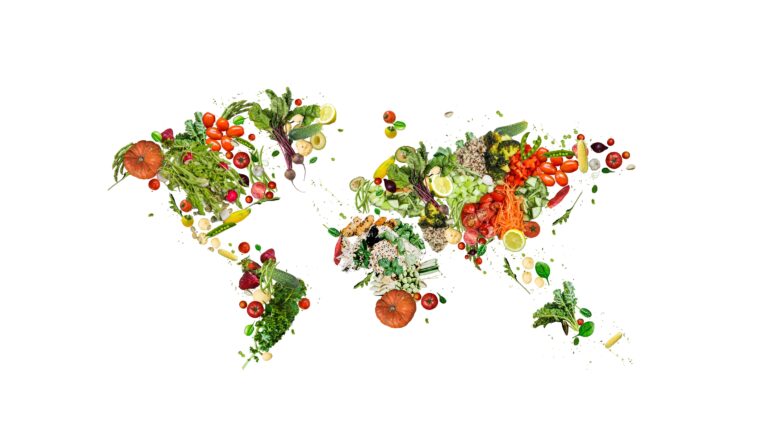
RITUAL, RESILIENCE AND RECOVERY

The soul-stirring pageantry during the opening of the 52nd International Eucharistic Congress earlier this month in Budapest came as a gift after a time of pandemic fast from communal celebration.
It was a display of faith and community, as Catholics celebrated their greatest ritual – the Eucharist.
The Congress followed the spectacular rituals of the Olympics and para-Olympics.
I was overwhelmed by images of the incredible achievements of the para-athletes.
Their rituals were infused with the extraordinary resilience of persons competing in spite of some of the most profound handicaps and challenges to health and human flourishing.
These experiences coincided with the beginning of the in-person school year in North America after a long period of isolation. For me, they brought together the crucial importance of rituals for the life and health of all, but especially for children.
Pandemic has disrupted almost all activities of daily life, including necessary sacred and profane rituals.
In the absence of traditional religious rituals and the rituals of professional sports and entertainment during lockdown, humans across the globe improvised.
New ones emerged from singing and pot banging in the streets at night to clapping for first responders at every opportunity and virtual family gatherings.
We have a pastoral responsibility to understand the importance of rituals in the recovery from the traumas affecting the post-pandemic Church and world.
There is a unique opportunity to adapt rituals to new needs and the challenges of our ever-evolving circumstances in ways that promote resilience and renewal.
Rituals
Rituals are a powerful human mechanism for managing extreme emotions and stress. They are defined as activities with ordered acts and utterances that carry, encode or generate meaning for participants.
The majority of people’s rituals are private and unique to them, such as morning coffee routines and special greetings to loved ones.
Psychology has studied the positive relationship of personal agency and identity to solitary or communal rituals. Sociology has focused on mechanisms of mutually focused attention, which generate shared meaning, increase social cohesion and order social relationships.
Anthropology has examined how ritual serves as a source of social meaning, and provides a structure through which individuals view the word.
Social psychology has identified factors associated with ritual experience including group presence, connection to the transcendent, symbolism, commemoration (memories) and lavish ornamentation in site and dress.
While rituals are crucial, there are cautions regarding rituals, which lose meaning over time when repetition overtakes meaning.
Rituals and Child Development
As a pediatrician I have experienced the crucial importance of the smaller but powerful and necessary rituals of family and early childhood for children’s sense of identity, security and moral development.
Family rituals are special, silly and solemn things a family does.
The general rituals of meals, bedtime, play and special celebrations such as birthdays and religious and cultural celebrations, such as Christmas, have been shown to provide parents and children with a sense of security, identity and belonging. They help children feel safe during uncertain times.
Health care officials around the world are concerned with the long-term physical and psychological effects of quarantine and social isolation on children and youth. The loss of positive rituals compounds their risk.
The effects of new rituals such as social distancing, mask wearing and avoidance of all touch are yet to be seen.
The risk of opening schools, sports and play must be balanced with the need for return to healthy and resilience-promoting rituals.
There is a special challenge of catechesis of children and passive participation in liturgy when they have been used to fast-paced interactive technology.
Promoting Resilience in Children and Youth
In caring for seriously ill and abused children, I have often been in awe of some children who have had the resilience to rise above the most chaotic and abusive family situations and flourish as caring and productive adults.
Advances in the interdisciplinary field of childhood studies have brought crucial insights about resilience and the development of children as moral and social agents from birth.
The promotion and support of resilience is crucial in responding to adverse events in childhood. It requires attention to both individual factors and institutional and cultural factors.
The word origins are in the Latin ‘resilere‘ meaning to recoil or spring back.
In psychology, it has come to mean the ability to respond effectively to and cope with trauma, adversity and failure. It is never returning to normal but a positive adaptation resulting in an ongoing protective capability.
Research has identified resilience-promoting factors include strong and stable social networks, acknowledging and confronting fears, a moral compass and role models and an optimistic outlook.
Resilience is a general capacity to overcome trauma and to confront and respond to changing conditions.
Recovery
The renewal of rituals in the post-pandemic and technologically dominated world is central for recovery from trauma for all. It has profound importance for children and youth.
Responding to trauma needs to be grounded theologically so that we maintain the essential beliefs.
Mass and communal celebrations of the liturgy were suspended in lockdown. This loss of spiritual supports during this frightening pandemic has exacerbated unprecedented spiritual trauma in modern times.
Many are now “out of practice” of the beloved Sunday Eucharist and long to return. Others feel little loss and will never return.
Pope Francis is wisely focusing on the central meaning of the Eucharist. What will inevitable and necessary new rituals look like in a truly global Church?
The multiple traumas from the COVID-19 pandemic create major challenges for pastoral care.
Clergy and Church workers have been frontline workers in pandemic lockdown. They need special resilience support as they experience compassion fatigue, burnout and traumatic stress.
The pastoral response needs to address the restoration of faith and resilience-promoting rituals.
We all need prayerful discernment of the new ‘rituals’ we have adopted in pandemic, which may have provided some comfort but have led us away from faith-filled recovery.
Nuala Kenny is a Sister of Charity in Halifax, Nova Scotia and a pediatrician. An officer of the Order of Canada since 1999, she has published several books, including Healing the Church (Novalis, 2012) and Rediscovering the Art of Dying (2017). She is co-author of Still Unhealed: Treating the Pathology in the Clergy Sexual Abuse Crisis (Novalis and Twenty-Third Publications, 2019). She has most recently published, A Post-Pandemic Church: Prophetic Possibilities (Novalis Publishing).
This article appeared on La Croix International previously this month.


